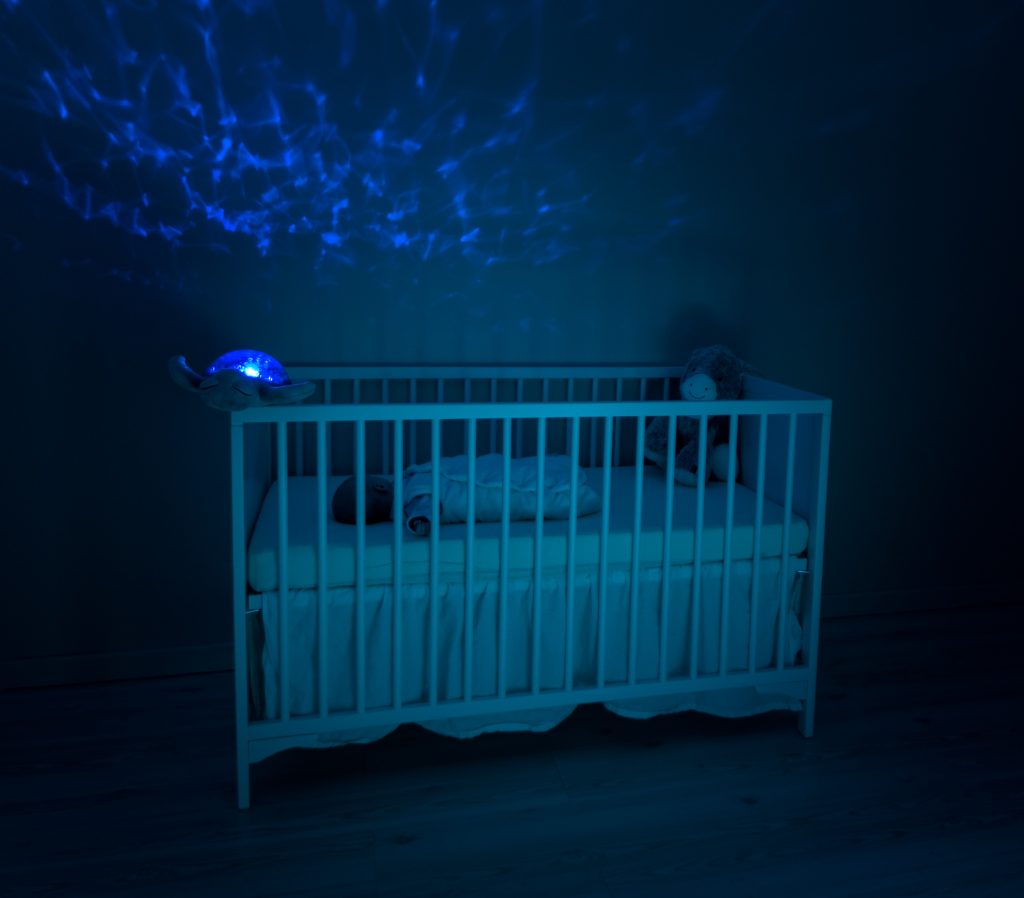Sleep: if you have a young child, it’s a mythical, mystical topic. During the baby days, it’s virtually non-existent. As your child reaches toddlerhood, though, the paradigm surrounding sleep shifts. Suddenly, your child is sleeping a lot, but how much sleep does he or she need? And how can you help promote the healthiest sleep possible?
Here’s what you need to know.
Children and Sleep, by the Numbers

Sleep is an essential process for all living creatures. During deep sleep, the body and mind regenerate, short-term memory is converted to long-term memory, and muscles and bones grow.
A toddler has different sleep needs than an adult. While most people know this by virtue of common sense, it can still be shocking to see the difference between these two groups broken down into actual numbers.
How Much Sleep Newborns Need

By the time we reach adulthood, most of us have established a regular circadian rhythm. What most people don’t know, though, is that these circadian rhythms take some time to develop. According to the National Sleep Foundation:
“Circadian rhythms, or the sleep-wake cycle, are regulated by light and dark, and these rhythms take time to develop, resulting in the irregular sleep schedules of newborns. The rhythms begin to develop at about six weeks, and by three to six months, most infants have a regular sleep-wake cycle. By the age of two, most children have spent more time asleep than awake, and overall, a child will spend 40 percent of his or her childhood asleep.”
Because of this, newborns between the ages of 0-3 months sleep around-the-clock. The sleep/wake cycle is not yet established, and it interacts simultaneously with their other needs: to be fed, changed, and held. As a general rule, newborns will sleep between 10-18 hours each day. The sleep schedule is irregular, and newborns are generally very active during sleep.
Sleep and Infants

Infants are babies aged 4-11 months. By about six months of age, a baby’s stomach has increased in size to the point that most no longer require nighttime feedings, and many will sleep through the night. During this period, infants usually sleep about 9-12 hours each day and take length naps one to four times each day.
According to the National Sleep Foundation:
“Infants who are put to bed drowsy but not asleep, they are more likely to become “self- soothers” which enables them to fall asleep independently at bedtime and put themselves back to sleep during the night. Those who have become accustomed to parental assistance at bedtime often become “signalers” and cry for their parents to help them return to sleep during the night.”
Toddlers and Sleep

Toddlers are children ages 1-2 years old. Children this age require a large amount of sleep each day – generally between 11-14 hours in a given 24-hour period. Most children of this age take one-three naps each day, with a length of about one-three hours each.
Toddlers at this age might start to resist bedtime and nighttime routines, even if they’ve been strong sleepers until this point. These children are exploring their independence, and have the increased motor skills necessary to allow them to climb out of their beds or play in their rooms instead of sleeping.
4 Smart Tips to Encourage Better Sleep for Your Toddler

Does your toddler’s sleep schedule leave something to be desired? Don’t worry. There are ways to take children that don’t sleep well and transform them into all-star sleepers. Here are a few tips:
1. Maintain a Sleep Schedule
After an age of about six months, children will benefit from a regular sleep schedule. Not only does this promote the development of healthy circadian rhythms, but it encourages sleep independence and helps babies develop healthy sleep habits that will stick with them for the rest of their lives.
The sleep schedule you develop should take your child’s natural patterns into consideration and should remain as consistent as possible at all times, including vacations and travel.
2. Establish a Sleep-Friendly Environment
Toddlers will sleep better if their bedrooms are geared toward deep, restful nights. According to Sleep.org, simple things, like installing blackout shades and curtains, red bulb nightlights (the warm light is less activating for the brain, so your toddler is less likely to “wake up” during night time stirrings), proper storage, and a white noise machine can go a long way toward creating a relaxing, sleep-friendly environment.
As you can see, you don’t have to overhaul a bedroom to make it a haven for sleep – just a few simple shifts can go a long way.
3. Address Underlying Issues
In some cases, sleep problems can come from underlying issues, such as pain, sickness, or discomfort. If you notice that your toddler is having trouble sleeping consistently, consider taking the child to the chiropractor. Chiropractic care is excellent for addressing structural issues, slight injuries, and other issues that can keep toddlers uncomfortable and make sleeping difficult.
4. Set Limits
With toddlers, it’s especially important to establish and maintain boundaries. While kids this age may sleep well once they’re in bed, many start resisting nighttime routines and bedtime. To counteract this, parents must establish routines and boundaries around bedtime, and make sure they’re enforced each night.
While this may be a difficult process at first, it will get easier with consistent reinforcement. Remember: kids love structure, and imposing some structure around bedtime will do everyone in the household good.
Better Sleep for Your Little One

Toddlers are growing and developing rapidly, and they need a great deal of sleep to facilitate this process. If your little one isn’t sleeping as well or as long as you’d like, it’s worth evaluating your bedtime routine, sleeping space, and toddler’s health. Any number of things can contribute to sleep problems, and it’s smart to attack the issue from all angles.
Once you’ve identified the issues underlying your baby’s sleep issues, you’ll all enjoy a more restful, comfortable night of sleep.
Ready to make an appointment for your toddler? Contact our office today to book your first appointment.


